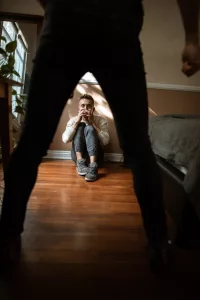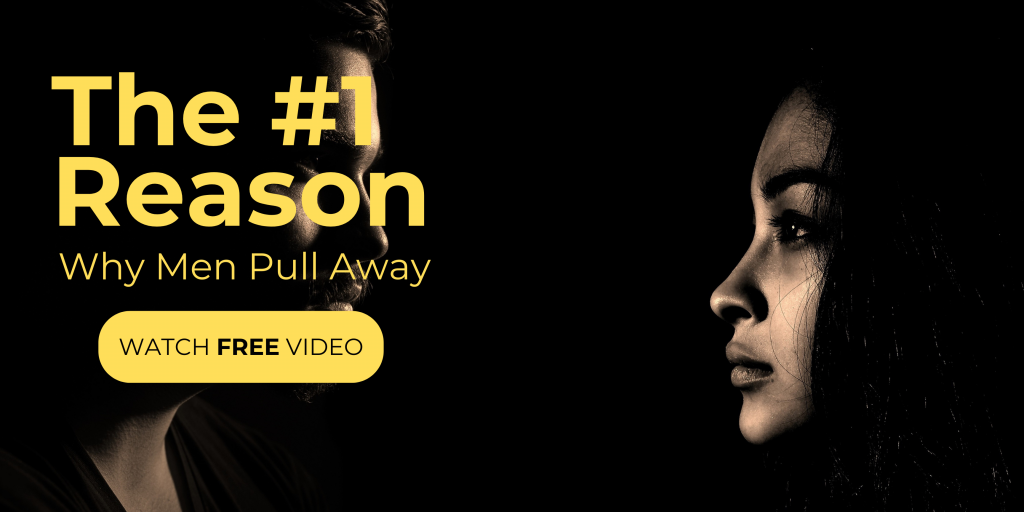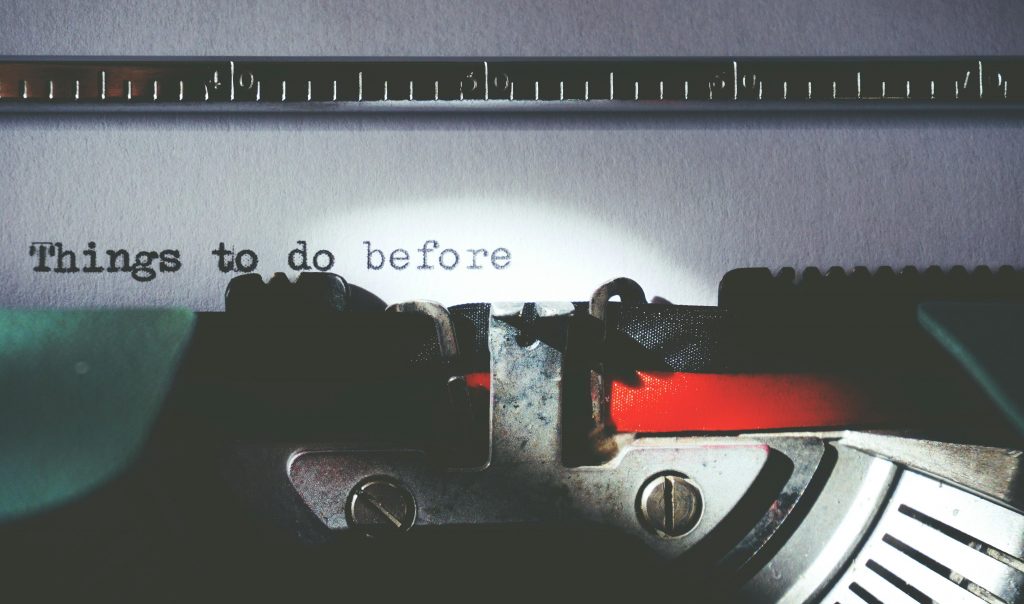Abuse in Relationship: Recognizing the Signs and Seeking Help
If you are in a relationship that makes you feel unsafe, unhappy, or unloved, you may be experiencing abuse. Abuse can take many forms, including physical, emotional, verbal, sexual, and financial.
It can happen to anyone, regardless of age, gender, race, or sexual orientation. If you are unsure whether you are being abused, it is important to recognize the signs and seek help.
Abuse in a relationship is never okay, and it is not your fault. You deserve to be treated with respect, kindness, and love.
If you are being abused, it can be difficult to leave the relationship, but there is help available. You do not have to suffer in silence, and you are not alone. There are many resources and support systems in place to help you escape abuse and start living a safe and healthy life.
Recognizing and addressing abuse in a relationship can be a difficult and emotional process, but it is important to take action to protect yourself and your well-being. In this article, we will explore the different types of abuse that can occur in a relationship, the signs to look out for, and the steps you can take to get help. Whether you are currently in an abusive relationship or have experienced abuse in the past, this article is designed to provide you with the information and resources you need to move forward and start healing.

Understanding Abuse in Relationship
Relationship abuse can take many forms, including domestic violence, intimate partner violence, emotional abuse, physical abuse, psychological abuse, verbal abuse, financial abuse, and sexual abuse. It is important to recognize that abuse is never acceptable and can have serious consequences for both the victim and the abuser.
Domestic violence is a pattern of behavior used to gain power and control over a partner in an intimate relationship. This can include physical violence, sexual violence, emotional abuse, and economic abuse. Domestic violence can happen to anyone, regardless of age, gender, race, or sexual orientation.
Intimate partner violence is a form of domestic violence that occurs between two people in an intimate relationship. This can include physical violence, sexual violence, emotional abuse, and economic abuse. Intimate partner violence can have serious consequences, including physical injury, psychological trauma, and even death.
Emotional abuse is a form of abuse that involves manipulating, belittling, or threatening a partner. This can include verbal abuse, such as name-calling or yelling, as well as non-verbal abuse, such as isolating a partner from friends and family or controlling their behavior.
Physical abuse is a form of abuse that involves using physical force to intimidate or harm a partner. This can include hitting, slapping, pushing, or choking, as well as using weapons or other objects to cause harm.
Psychological abuse is a form of abuse that involves manipulating a partner’s thoughts and feelings. This can include gaslighting, which involves denying a partner’s reality or making them doubt their own sanity, as well as other forms of emotional manipulation.
Verbal abuse is a form of abuse that involves using words to hurt or control a partner. This can include name-calling, yelling, and other forms of verbal aggression.
Financial abuse is a form of abuse that involves controlling a partner’s access to money or other financial resources. This can include preventing a partner from working, controlling their finances, or stealing their money.
Sexual abuse is a form of abuse that involves forcing or coercing a partner into sexual activity. This can include rape, sexual assault, and other forms of sexual violence.
It is important to recognize the signs of relationship abuse and to seek help if you or someone you know is experiencing abuse. There are many resources available, including hotlines, shelters, and counseling services, that can provide support and assistance. Remember, abuse is never acceptable and there is help available.
Disclaimer: If you or someone you know is experiencing abuse in a relationship, it is important to reach out for help. You can contact the National Domestic Violence Hotline at 1-800-799-7233 for support and resources. Remember, you are not alone, and there are professionals ready to assist you on your journey to safety and healing.
Power Dynamics and Manipulation
Power and Control Dynamics
In an abusive relationship, power and control dynamics are often at play. The abuser may use their position of power or authority to take advantage of, coerce, or harm their partner. This can manifest in a variety of ways, such as controlling finances, limiting access to resources, or using physical violence to maintain control.
One common pattern of power and control dynamics is the cycle of abuse, which includes four stages: tension building, explosion, remorse, and honeymoon. During the tension-building stage, the abuser may become increasingly irritable, critical, or demanding. This tension can escalate until an explosion occurs, which may involve physical or emotional abuse. After the explosion, the abuser may express remorse and apologize, but this is often followed by a honeymoon phase where things seem to go back to normal. However, this cycle inevitably repeats itself.
Manipulation in Relationships
Manipulation in relationships can be subtle but very damaging. It can involve tactics such as gaslighting, where the abuser makes their partner doubt their own perceptions and reality. This can lead to a sense of confusion and self-doubt, making it easier for the abuser to maintain control.
Another form of manipulation is narcissistic abuse, where the abuser seeks to control and manipulate their partner for their own gain. This can involve tactics such as belittling, shaming, or blaming their partner for their own shortcomings.
Manipulation can also be a precursor to physical abuse. In some cases, emotional manipulation can be used to wear down a partner’s defenses, making them more vulnerable to physical violence.
It is important to recognize the signs of manipulation in a relationship and seek help if you feel you are being manipulated or abused. This can include reaching out to a trusted friend or family member, seeking counseling, or contacting a domestic violence hotline for support. Remember, you deserve to be in a healthy and safe relationship.
Identifying Abuse in Relationships
If you suspect that you may be in an abusive relationship, it is important to understand the signs of abuse, the cycle of abuse, and the red flags in relationships. By recognizing these warning signs, you can take steps to protect yourself and seek help.
Signs of an Abusive Relationship
Abuse can take many forms, including physical, sexual, emotional, and financial abuse. Here are some signs that you may be in an abusive relationship:
- Your partner frequently criticizes you, belittles you, or calls you names.
- Your partner tries to control your behavior, such as telling you what to wear, where to go, or who to see.
- Your partner becomes jealous or possessive, accusing you of flirting or cheating.
- Your partner uses physical force or threats of violence to control you.
- Your partner forces you to engage in sexual acts against your will.
- Your partner withholds money or resources from you, or controls your finances.
If you are experiencing any of these signs, it is important to seek help and support.
Cycle of Abuse
Abuse often follows a cycle that includes three phases: tension-building, explosive, and honeymoon. During the tension-building phase, the abuser becomes increasingly irritable and critical, leading to arguments and conflicts. The explosive phase is characterized by physical or emotional violence, such as hitting, yelling, or threatening. Finally, during the honeymoon phase, the abuser may apologize, promise to change, and shower the victim with affection and gifts.
It is important to recognize this cycle and seek help before the violence escalates.

Red Flags in Relationships
There are some red flags that may indicate that a relationship is abusive or may become abusive in the future. These include:
- Your partner is overly possessive or jealous.
- Your partner tries to isolate you from friends and family.
- Your partner tries to control your behavior or decisions.
- Your partner has a history of violent or abusive behavior.
- Your partner blames you for their behavior or emotions.
- Your partner threatens you or others.
If you notice any of these red flags, it is important to take them seriously and seek help.
Remember, abuse is never your fault, and you deserve to be treated with respect and dignity. If you are experiencing abuse, reach out to a trusted friend, family member, or professional for help and support.
Consent and Boundaries
Consent in Relationships
Consent is an affirmative agreement between partners to engage in physical or sexual activity. It is important to understand that consent must be given freely and willingly without any pressure, coercion, or manipulation. It is also essential to note that consent is not a one-time event but rather an ongoing process. It is important to ask for and receive consent every time you engage in any sexual activity.
Healthy vs. Unhealthy Relationships
In a healthy relationship, both partners respect each other’s boundaries and communicate openly and honestly. They understand that consent is necessary and are willing to listen and accept each other’s decisions. In an unhealthy relationship, one partner may try to control or manipulate the other, ignore their boundaries, or pressure them into doing things they are not comfortable with.
Relationship Boundaries
Boundaries are decisions that protect fundamental safety or integrity, indicating what one will and will not tolerate. They are essential in any relationship and help to establish mutual respect and trust. It is important to communicate your boundaries clearly and assertively. Remember that setting boundaries is not about controlling your partner but rather about taking care of yourself.
Here are some common examples of relationship boundaries:
- Physical boundaries: These include personal space, touching, and sexual activity. It is important to communicate your comfort level and respect your partner’s boundaries.
- Emotional boundaries: These include privacy, sharing personal information, and respecting each other’s feelings. It is important to communicate your emotional needs and respect your partner’s boundaries.
- Time boundaries: These include how much time you spend together and apart. It is important to communicate your schedule and respect your partner’s time and commitments.
Remember that boundaries are personal and may vary from person to person. It is important to communicate your boundaries clearly and respect your partner’s boundaries as well. If your partner violates your boundaries, it is important to speak up and take action to protect yourself.

Effects of Abuse
Abuse in a relationship can have a profound impact on your mental and physical health. Here are some of the effects of abuse that you may experience:
Battered Woman Syndrome
Battered Woman Syndrome (BWS) is a condition that describes the psychological effects of long-term abuse. It is characterized by symptoms such as depression, anxiety, low self-esteem, and feelings of helplessness. If you have been in an abusive relationship for a long time, you may develop BWS. It is important to seek help if you think you may be experiencing this condition.
Codependency
Codependency is a condition that often develops in people who have been in abusive relationships. It is characterized by a need to be needed, a fear of abandonment, and a tendency to put others‘ needs before your own. If you have been in an abusive relationship, you may have developed codependency as a way to cope with the abuse.
Trauma Bonding
Trauma bonding is a phenomenon where you become emotionally attached to your abuser. It occurs when the abuser alternates between abuse and kindness, creating a cycle of hope and despair. This can make it difficult for you to leave the relationship, even if you know it is unhealthy.
Impact of Abuse on Mental Health
Abuse can have a significant impact on your mental health. It can lead to conditions such as depression, anxiety, and post-traumatic stress disorder (PTSD). If you have been in an abusive relationship, it is important to seek help from a mental health professional. They can help you work through the trauma and develop coping mechanisms to deal with the effects of the abuse.
In conclusion, abuse in a relationship can have a profound impact on your mental and physical health. It can lead to conditions such as Battered Woman Syndrome, codependency, trauma bonding, depression, anxiety, and PTSD. If you are experiencing abuse, it is important to seek help from a professional. They can help you work through the trauma and develop coping mechanisms to deal with the effects of the abuse.
Support and Recovery
If you or someone you know has experienced abuse in a relationship, it is important to seek support and take steps towards healing and recovery. Here are some resources and strategies to consider:
Support for Abuse Survivors
It is important to have a support system when healing from abuse. This can include friends, family members, or support groups. If you don’t feel comfortable talking to someone you know, there are also hotlines and online resources available. The National Domestic Violence Hotline (1-800-799-7233) is available 24/7 to provide support and resources for those experiencing domestic violence. You can also use the Crisis Text Line by texting HOME to 741741 to receive free, confidential support.
Resources for Victims of Abuse
There are many resources available for victims of abuse. These can include legal resources, financial assistance, and housing options. The National Coalition Against Domestic Violence (NCADV) provides a directory of resources by state, including shelters, legal aid, and counseling services. Additionally, organizations like RAINN (Rape, Abuse & Incest National Network) provide resources and support for survivors of sexual assault.
Healing and Recovery from Abuse
Healing from abuse is a process that can take time and may require professional support. It is important to prioritize self-care and take steps towards healing. This can include therapy, practicing mindfulness or meditation, and engaging in activities that bring joy and fulfillment. Writing in a journal can also be a helpful tool for processing emotions and experiences.
Relationship Counseling
If you are in a relationship and have experienced abuse, it may be helpful to seek couples counseling or relationship therapy. However, it is important to prioritize your safety and well-being. If you do choose to pursue counseling with your partner, it is important to work with a licensed therapist who has experience working with survivors of abuse.
Remember, healing from abuse is a process and it is important to prioritize your safety and well-being. Seeking support and resources can be an important step towards healing and recovery.
Legal and Societal Perspectives
Abuse in relationships is a serious issue that can have devastating effects on individuals and society as a whole. Legal and societal perspectives play a crucial role in addressing and preventing abuse in relationships. This section explores the legal and societal perspectives on abuse in relationships, including legal protection against abuse, teen dating violence, elder abuse in relationships, and cultural and societal influences on abuse.
Legal Protection Against Abuse
Legal protection against abuse is an important aspect of preventing abuse in relationships. Laws and policies have been put in place to protect individuals from abuse in relationships. These laws vary by jurisdiction, but they generally define abuse as any behavior that is intended to control or harm another person. Some common forms of abuse include physical abuse, emotional abuse, sexual abuse, and financial abuse.
In many jurisdictions, there are specific laws that protect individuals from domestic violence. These laws may provide for restraining orders, mandatory arrest policies, and criminal penalties for perpetrators of domestic violence. It is important for individuals who are experiencing abuse in a relationship to seek legal protection as soon as possible.

Teen Dating Violence
Teen dating violence is a significant problem that can have long-term effects on individuals and society. Teen dating violence includes physical, emotional, or sexual abuse that occurs in a dating relationship. It can be perpetrated by either partner and can occur in both heterosexual and same-sex relationships.
There are many factors that contribute to teen dating violence, including cultural and societal norms, peer pressure, and lack of education about healthy relationships. It is important for parents, educators, and other adults to be aware of the signs of teen dating violence and to provide support and resources to teens who may be experiencing abuse.
Elder Abuse in Relationship
Elder abuse in relationships is a growing concern as the population ages. Elder abuse can take many forms, including physical, emotional, and financial abuse. It can be perpetrated by family members, caregivers, or others who have a relationship with the elder.
There are many factors that contribute to elder abuse, including social isolation, financial dependence, and cognitive impairment. It is important for individuals who are experiencing elder abuse to seek help and for caregivers to receive education and support to prevent abuse from occurring.
Cultural and Societal Influences on Abuse
Cultural and societal influences play a significant role in shaping attitudes and behaviors related to abuse in relationships. These influences can include gender roles, social norms, and cultural beliefs about relationships and violence.
It is important to recognize and challenge negative attitudes and beliefs about abuse in relationships in order to prevent and address abuse. Education and awareness campaigns can help to promote healthy relationships and prevent abuse from occurring.
Overall, legal and societal perspectives are crucial in addressing and preventing abuse in relationships. By providing legal protection, education, and support, we can work towards creating a society free from abuse and violence.
Disclaimer: If you or someone you know is experiencing abuse in a relationship, it is important to reach out for help. You can contact the National Domestic Violence Hotline at 1-800-799-7233 for support and resources. Remember, you are not alone, and there are professionals ready to assist you on your journey to safety and healing.







